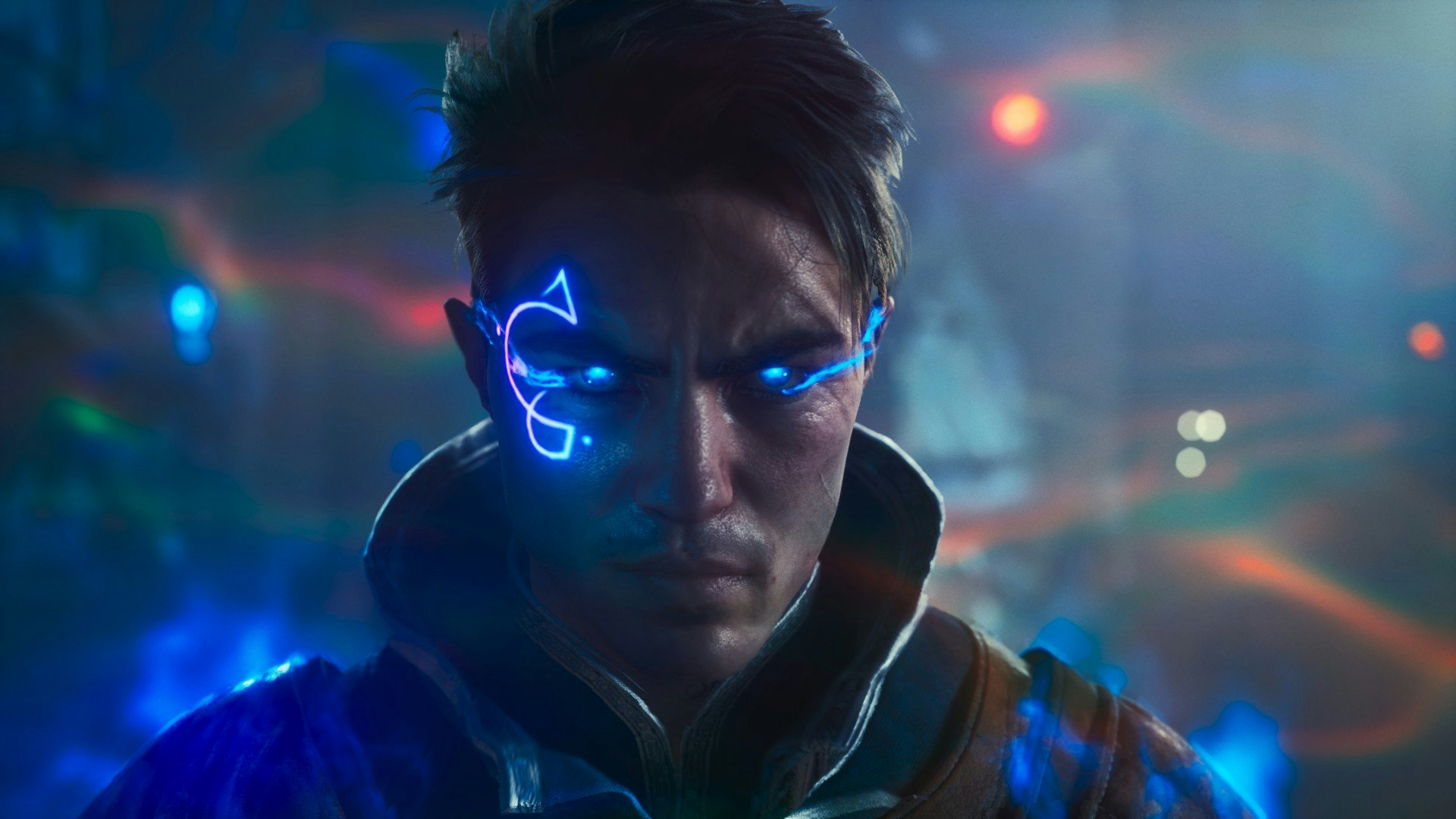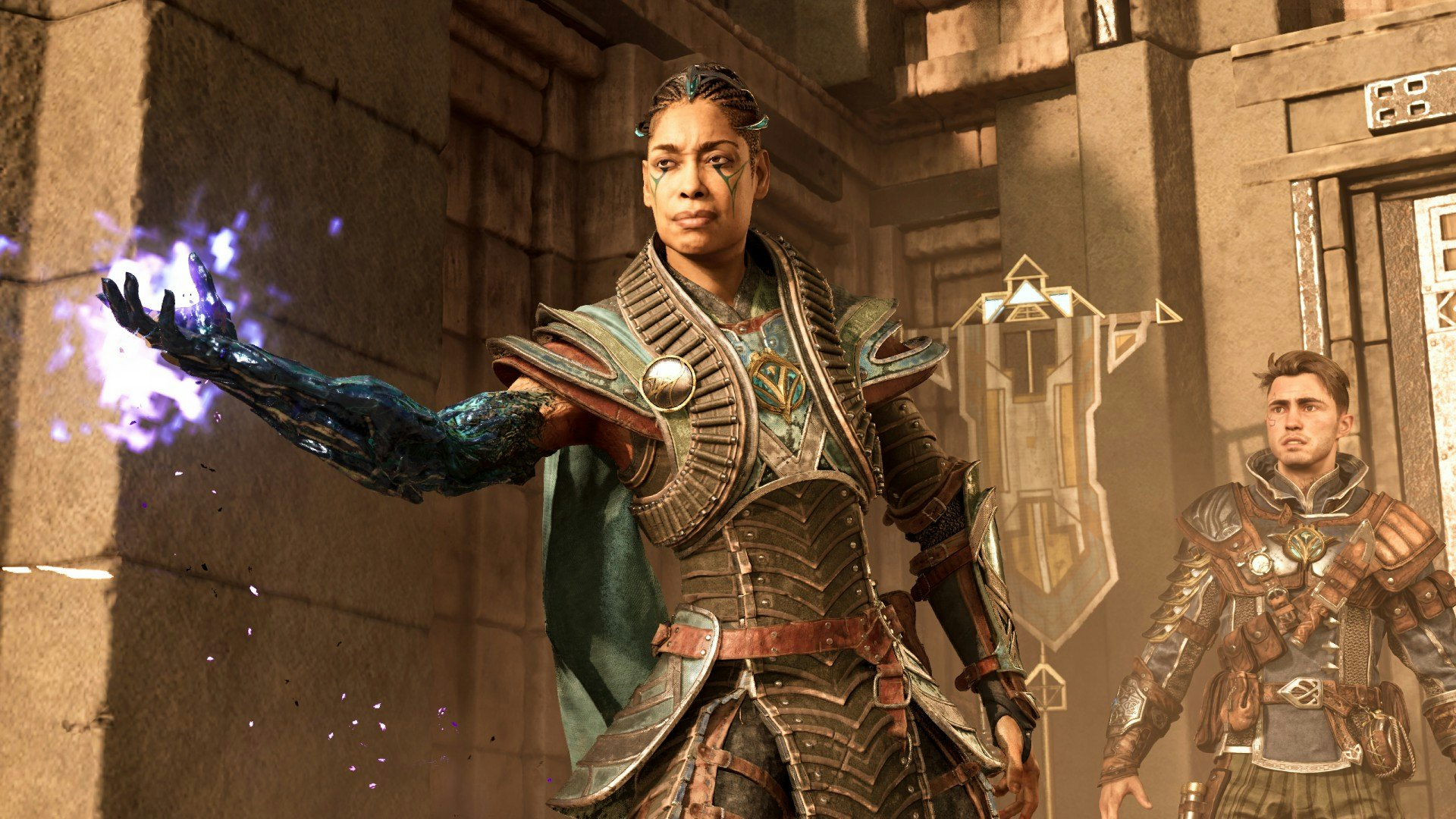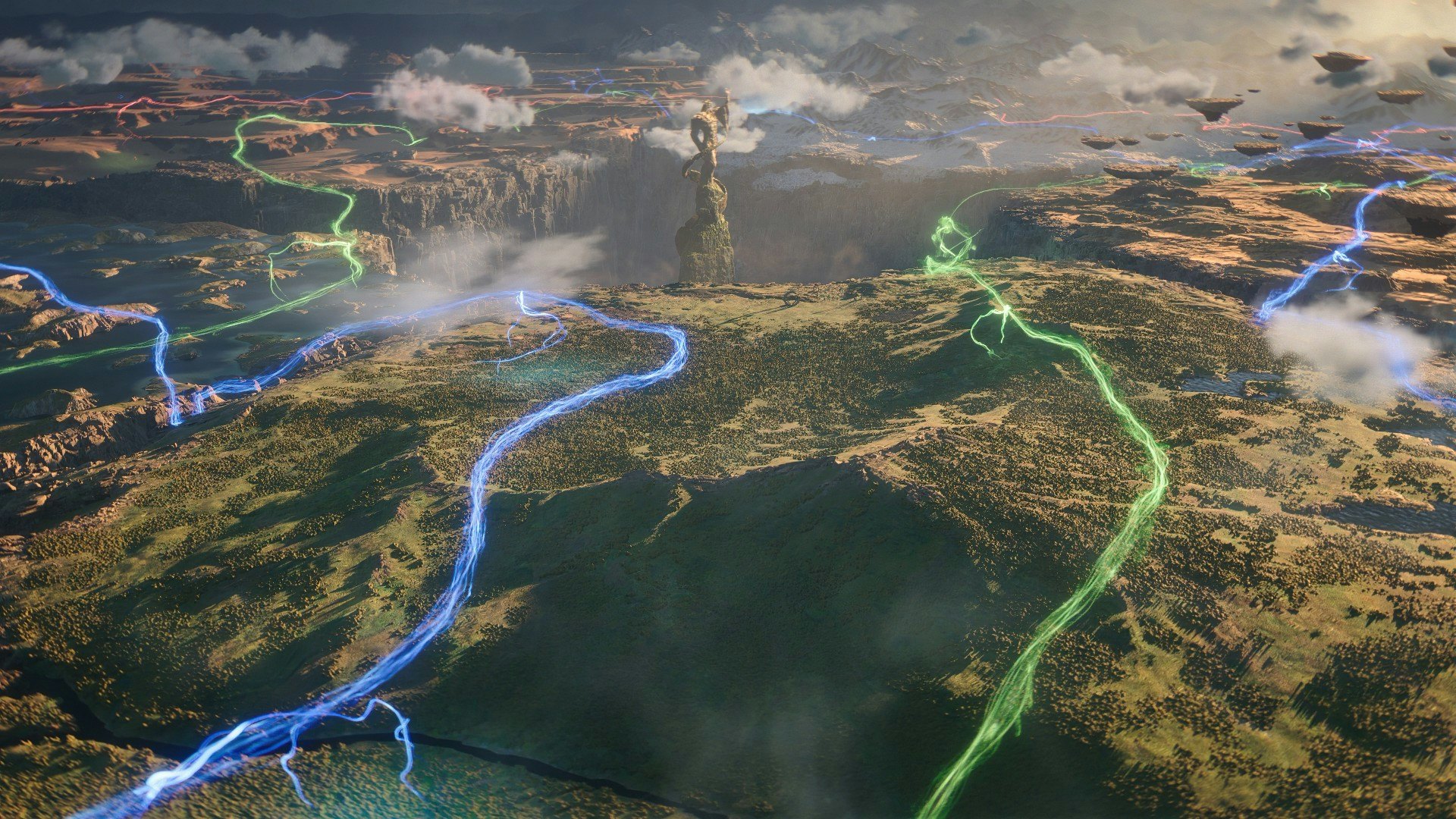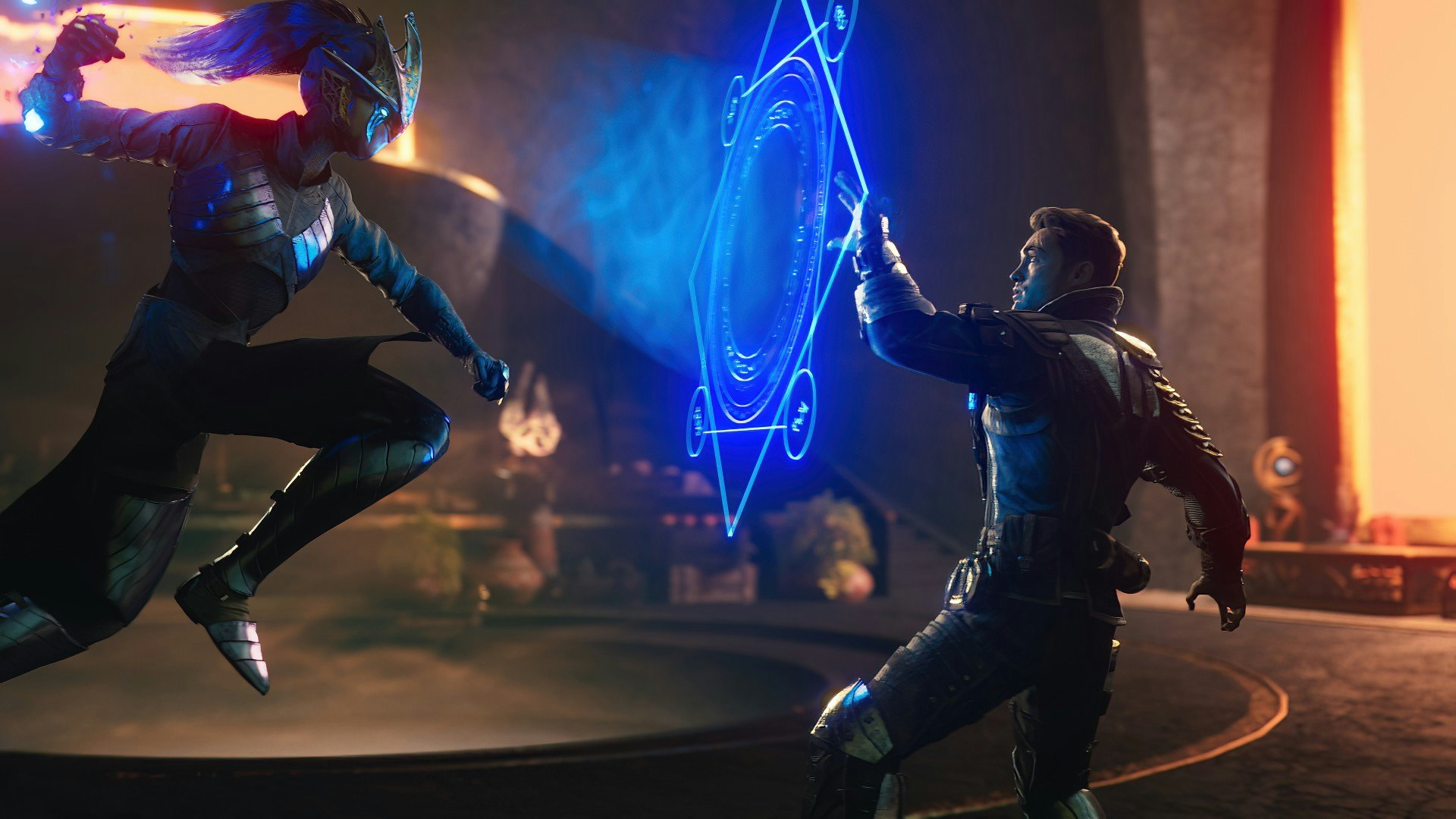
One day while working on Call of Duty, Bret Robbins had a bizarre daydream and pictured a dragon flying over a battlefield rather than an attack chopper and battle mages hurling spells instead of soldiers with grenades. Over the years, the genesis of that idea evolved into Immortals of Aveum, a fast-paced magical shooter with a vibrant aesthetic that Robbins hopes can shake up the shooter genre.
“I made a decision early on that the tone of the game wouldn't be the standard fantasy tone that you're used to. This isn't Lord of the Rings,” Robbins tells Inverse in a recent interview. “My touchstone was more something like a Marvel movie, where even if you have a movie like Guardians of the Galaxy, that takes place in a fantastical setting, the characters are very relatable and speak like you and I do.”
Robbins has a storied career in shooters and sci-fi. He served as creative director on the original Dead Space and a trio of Call of Duty titles: Modern Warfare 3, Advanced Warfare, and WW2.

Based on a roughly 30-minute presentation from Ascendant Studios, Immortals of Aveum does have an uncanny kind of energy to it. This is a game that wants the player to have fun and is determined to throw loads of big flashy spectacles at you to achieve that. Immortals leaves a strong first impression, although I have a bit of a nagging worry it won’t do enough to stand out from the competition, despite the infusion of magic.
A Whole New World
Immortals takes place in an original fantasy setting called Aveum. Players assume the role of a young man named Jak, who’s grown up powerless and destitute on the streets of a city called Seren. Aveum’s two ruling countries have been locked in a conflict called the Everwar for centuries, and Jak is thrust into the middle of the conflict when he becomes an Unforeseen, someone who unexpectedly manifests magical abilities later in life, when most people have access to it immediately.
Jak himself seems like the headstrong type that leaps before he looks, and it’s easy to see that kind of character serving as the catalyst for a sort of Marvel-esque story about growth.

“With Jack, I wanted to have a really compelling arc for him. So where he starts and where he ends are very different places across the story across the campaign,” Robbins says. “Because of certain traumatic events that have happened over the course of the game, he suddenly erupts with all this innate magical power. I wanted a character that was flawed and certainly makes mistakes across the course of the game. And he matures.”
The power Jak now wields gives him the unique ability to control all three forms of magic that exist in Aveum, each of which is tied to a color and serves a specific purpose in battle.
Force magic (blue) is a long-range high-damage shot, Chaos (red) is an explosive close-range blast, and Life (green) lets you fire off a flurry of projectiles. In addition to these core magic powers, Ascendant showed off a variety of ancillary skills Jak can use, like the Lash ability that gives you a grappling hook to traverse the environment as well as pull enemies in close.
Spell-Slinging
The big catch with all this is that, from watching gameplay, Immortals looks shockingly similar to many other shooters out there. Yes, you’re slinging magic spells, but Immortals will really need to prove that it has the chops to be something fresh and different from the scores of other run-and-gunners out there.

While we only got a brief glimpse of the skill tree, the studio says Immortals will have “25 spells and 80 talents” that players can use to customize their combat experience, leaning into whatever combat style they want.
“There was a lot of early magic prototyping and experimentation. We're trying to figure out how to make a magic shooter interesting. What makes it different?” Robbins says. “We went down some roads that ended up being a little too complicated or obtuse. We had to dial it back. Ultimately, I needed to make sure that we're making a really compelling shooter, first and foremost, and then layer on top of that, things that are interesting and different about our game and its magic.”
There’s a speed and intensity to Immortal’s combat that absolutely feels comparable to modern Call of Duty games, but Robbins also promises that massive set pieces are “part of the experience” on cinematic, linear story levels. Outside of those moments, however, Immortals will pack in more exploration and puzzle-solving in its hub areas, where you can also pursue optional content that helps flesh out the story.
What really stood out the most to me during the hand-off preview was the eclectic soundtrack.

As the presentation zipped through flashy combat scenes, the music swelled to electronic crescendos before looping into a beat you wouldn’t be surprised to hear on a hip-hop track. Robbins says that tonal whiplash is entirely intentional. The team wanted to make Immortals feel modern despite the fantasy aesthetics. The way the music enhances an already energetic experience is a welcome surprise.
Immortals, admittedly, feels like a bit of an anomaly so far.
The aesthetics feel similar to the modern fantasy you see in something like Final Fantasy XV, but the energy and tone feel much more in your face. Combining Call of Duty bombast with more thoughtful puzzle-focused exploration and lots of magic hasn’t really been done before, especially as it leans a bit more towards Elder Scrolls than it does BioShock.
If Immortals can achieve the perfect balance for its disparate elements, it may wind up as something truly special. We simply haven’t seen enough to make that judgment call. The shooter genre is in desperate need of a shake-up right now. Ascendant Studios recognizes this, and if they have their way, then a bolt of lightning magic will do just the trick.







